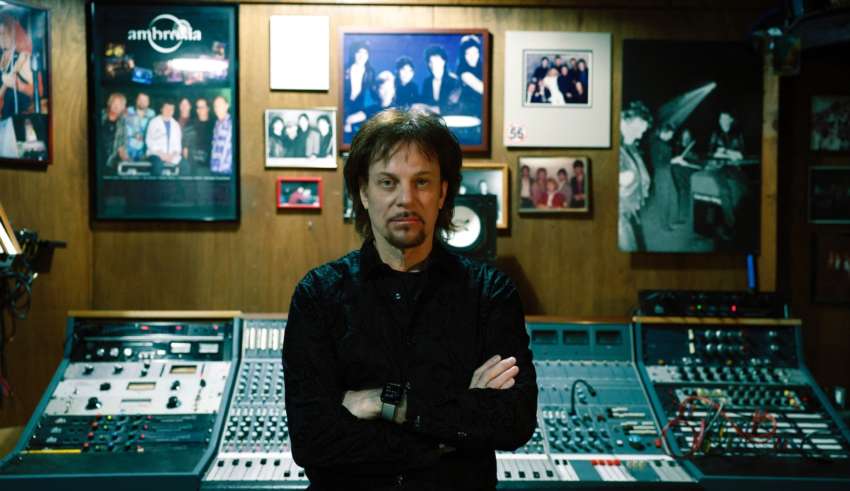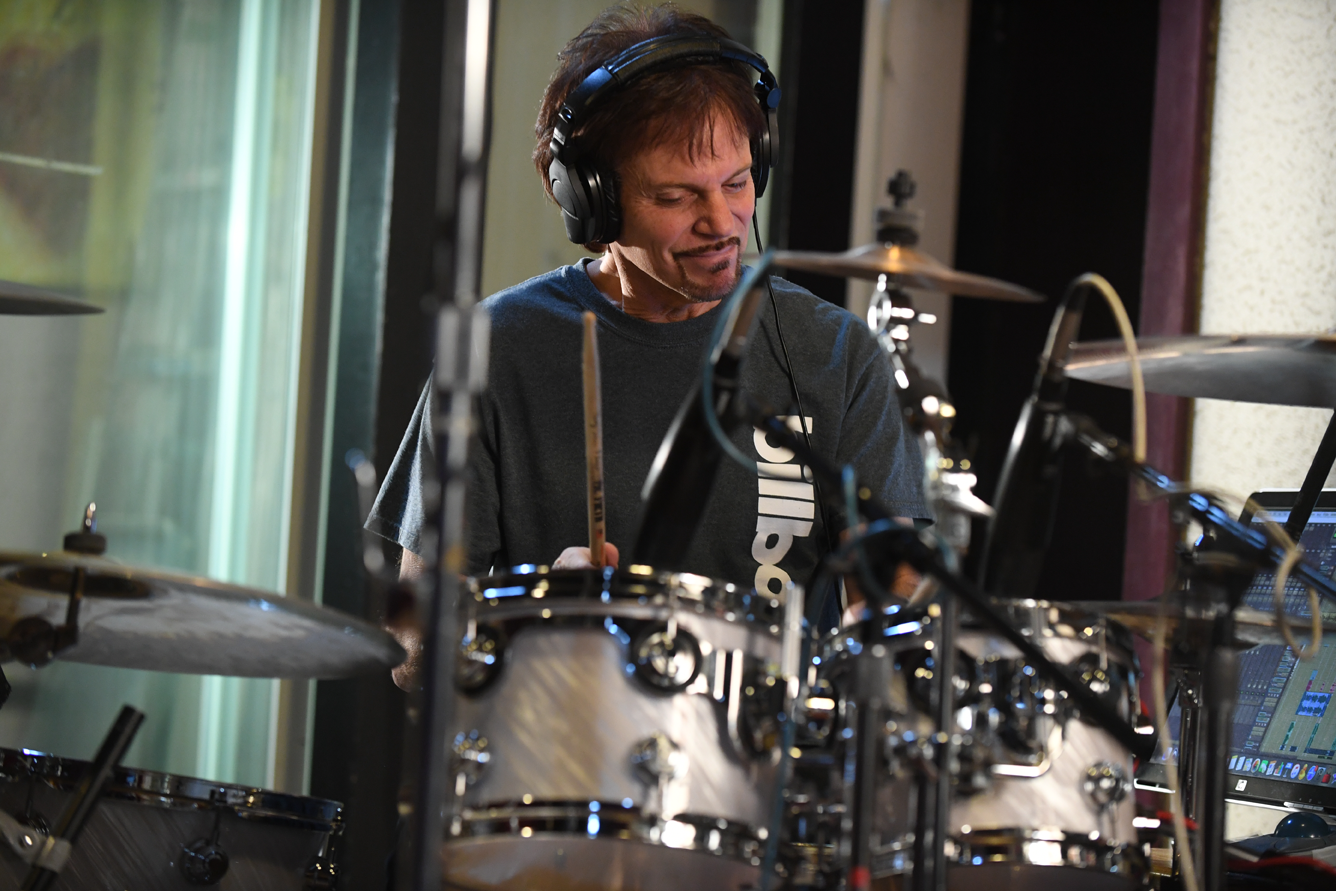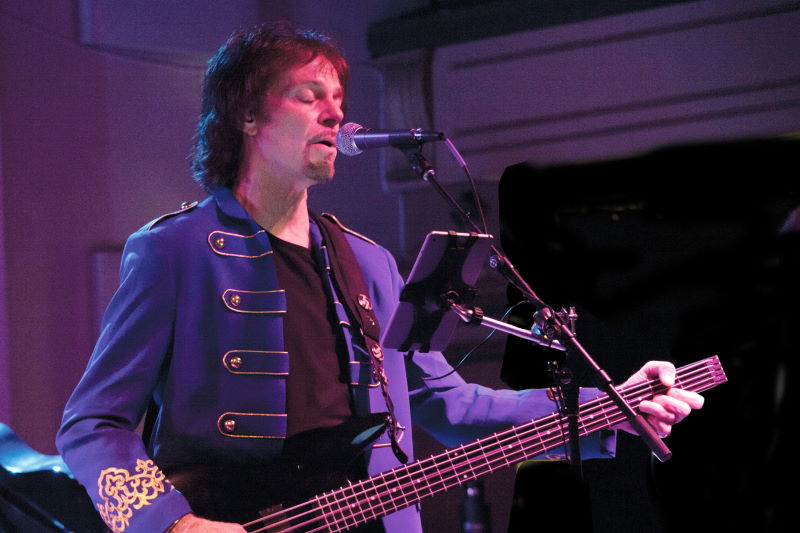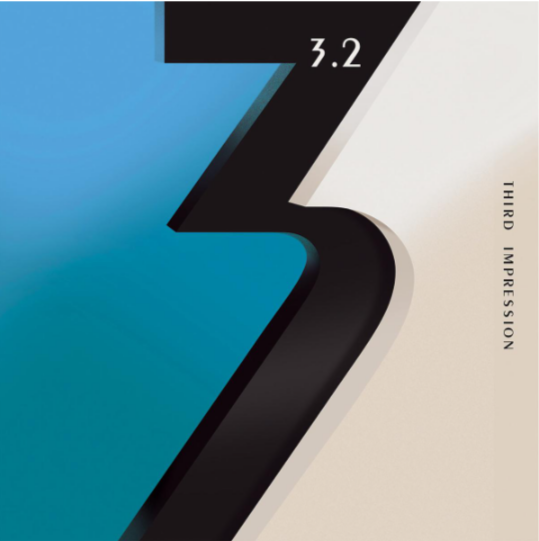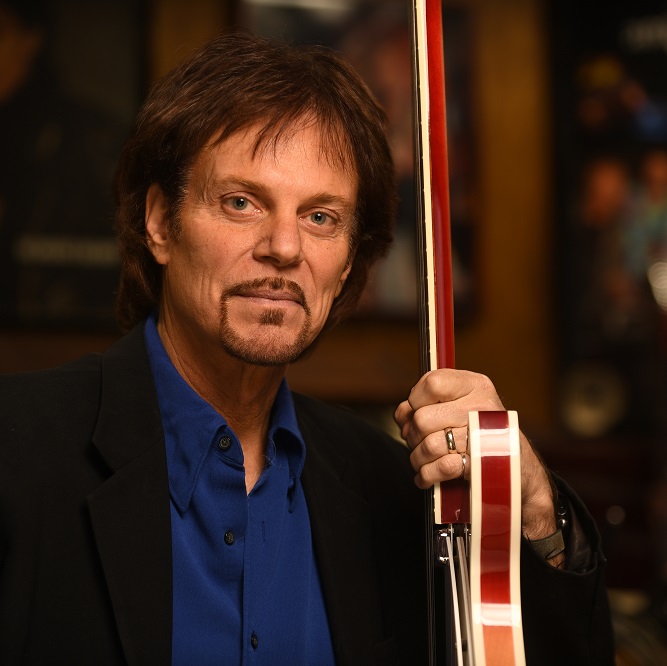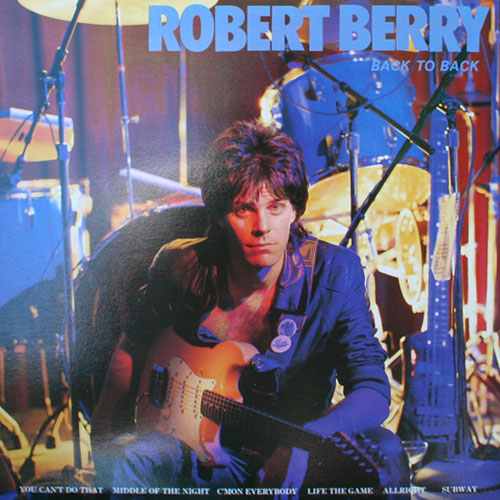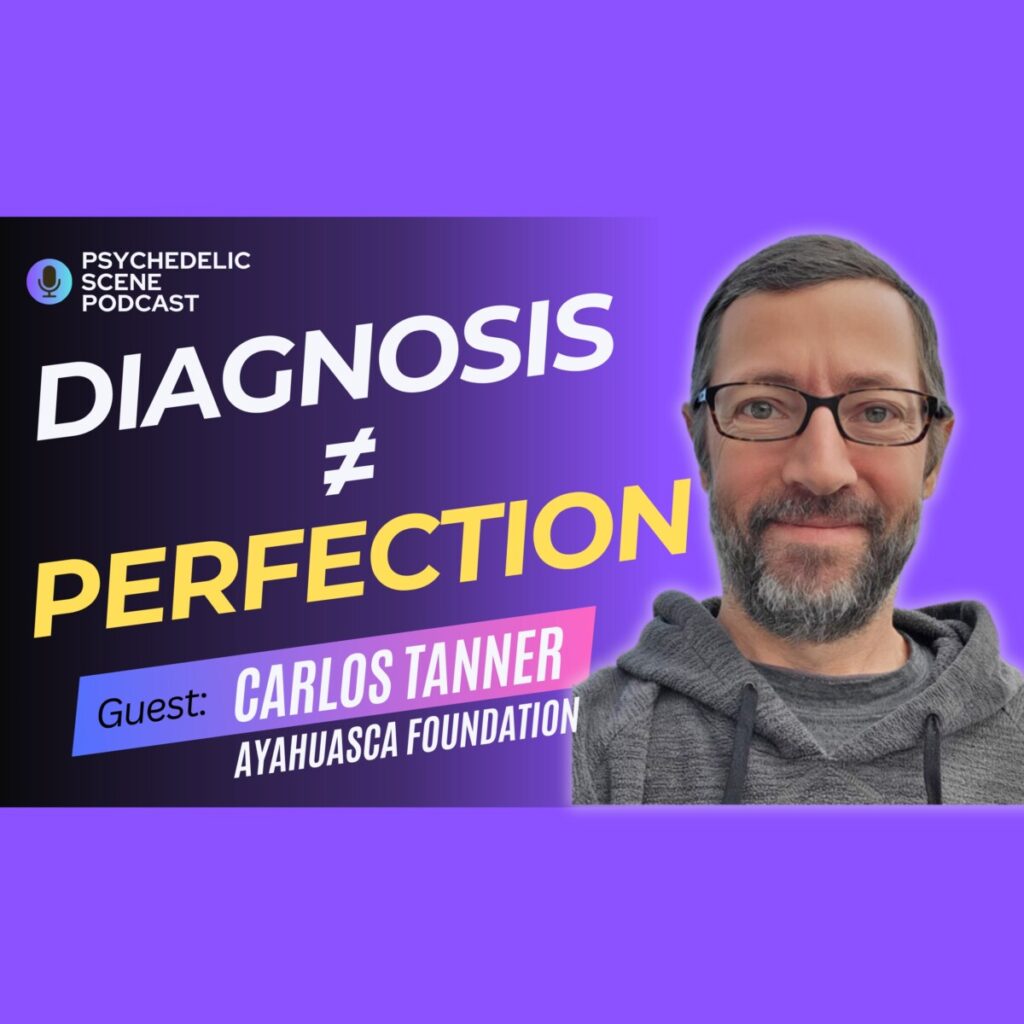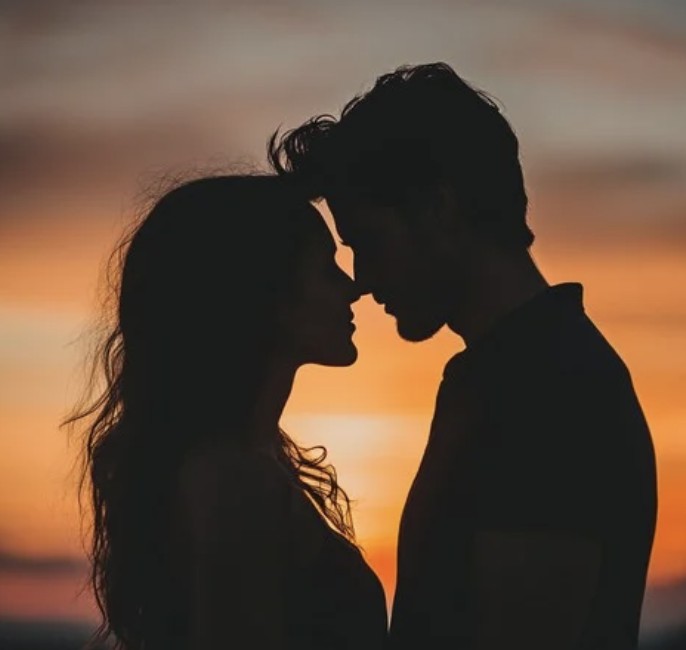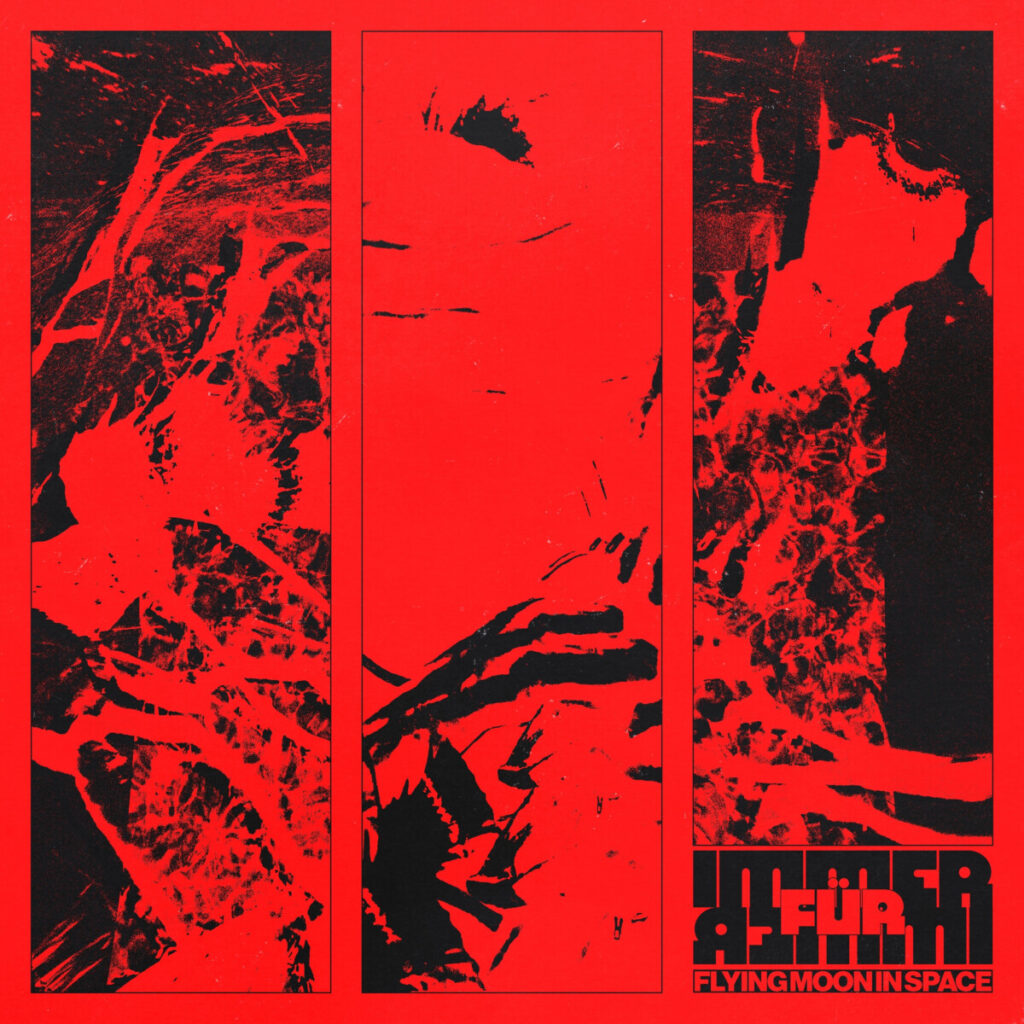Interview: Robert Berry on Working with Steve Howe, Keith Emerson, Carl Palmer and More
Interview: Robert Berry on Working with Steve Howe, Keith Emerson, Carl Palmer and More
I’m here today to interview Mr. Robert Berry for Psychedelic Scene Magazine. Robert is a Grammy-nominated artist. He is so talented– songwriting, singing, producing, engineering– a lot of different aspects of the music industry. And he has collaborated with a lot of true legends in the industry as well.
Oh, you wanted that that Robert Berry. I’m sorry.
I know he’s there somewhere! (laughing)
You have the wrong number! (laughing)
So this album, the 3.2 album. 3.2 has quite an incredible history and significance. Can you take us back to the late 80s where this all started and tell us the story of 3 and 3.2?
Definitely the greatest time of my life. And for a lot of musicians it would have been the greatest time of their life. I got to work with Carl Palmer, Keith Emerson from ELP. I sort of replaced Greg Lake, but really started a new band.
Late 80s bands like Yes and Genesis, and ELP even, were doing more formatted songs and not just long 10 minute pieces. Yes had “Owner of a Lonely Heart”. They had hits on the radio. Keith wanted a bit of that. Carl had that with Asia.
Keith got criticized a lot so he broke up the band–after our top 10 hit, you know.
Carl found me through Geffen Records who was grooming me to be a Bryan Adams meets Sting kind of artist. Straight rock with creativity, you know. Carl liked that, and we actually tried for a year-and-a-half to start a band and we couldn’t find the right players. Keith had stayed with Greg Lake and done Emerson, Lake, and Powell during that time. Carl was doing Asia and left Asia and wanted to do something new. It just all got stirred up, and finally after everything I landed with Keith and Carl in the band 3.
So we did an album, worked a year on that, went on a tour, we had a top 10 song. The problem for Keith Emerson was that he hadn’t done that more formatted song oriented thing like Carl had in Asia. So Keith got criticized by the ELP fans. But I didn’t of course, I was the new guy. That was my first big break and they only said, “We want Greg Lake back”, which I understood because I was a Greg Lake fan too, so that didn’t bother me. I said “Ya, I get that, but heheh, I’m here now! Too bad.” (laughter).
We were gathering a lot of the young audience. It wasn’t just the old ELP people. So I was hoping to bridge that gap because I had started in progressive music when I was younger, in my band Hush, a local band here. But Keith got criticized a lot so he broke up the band– after our top 10 hit, you know. He was susceptible to that kind of thing.
So, 27 years later, a record company puts out a “Live in Boston” 3 album. And we all had to sign off on it to do it. Keith signed off … he didn’t really think about it because he’d sort of left it behind. The criticism had really worn him down for the band 3. Soon as it came, after they pressed it, he actually listened to it and called me up right away and said “Oh my god. We were such a good band! I had no idea.” I went, “Well, Keith, I always thought so!”
So I took the opportunity to say “How about we do a follow-up”? He said if things are right he would so I called the record company. They’d been bugging me for years “Do another 3 album. Do another 3 album”. I got us great money, complete artistic freedom, and how much time we wanted to do it – a year to do it – and Keith was thrilled. He went “Whoa, who has that kind of money?” “Keith” I said “they want a 3 album. They want Keith Emerson on their label”. This was Frontiers records in Italy.
So we started working on the album. What was odd for me later on was that whenever I talked with Keith, where we’d spend time together, he was happy. We were doing music together. This was kind of his happy place, doing music, and I never even felt he was despondent in any way than the normal, you know, problems around the house, and “the show in England didn’t go that well”. You know, stuff he’d talk about. And in the middle of doing that album he committed suicide. He had a lot of health issues, impending heart problems. He had other home/personal things going on that I knew a little bit about but I just thought they were normal ‘a guy complaining’, you know.
So I wasn’t going to finish the album. The record company and Keith’s son wanted me to finish it, and it was kind of tough. Took me a year to get going again. Because that was, you figure, my most famous friend, the greatest keyboard player in the world, 27 years between albums. Emotionally it was hard for me, and they kind of got me going on it and I finished it up. I was worried it wasn’t the right thing to do, but as I was doing it, it felt like the right thing to do. Played it for the record company – they thought it was fantastic. They put it out. It got the best reviews of my life. Instead of people saying “Aw, you shouldn’t have done this”, they were welcoming it with open arms or glad to hear what Keith was doing right the last year before he died. And it was great. Got on the Billboard charts and it was really something. I was like, “Wow, if Keith would have just been here for that. Who knows what that would have changed”? He would have felt all the other stuff maybe was not as important as he felt it was, you know. Although that’s a whole different subject. When you get in that dark hole where you’re capable of committing suicide, can’t see into it and whoever’s there can’t see out of it. So it’s a whole psychological thing that’s hard to understand.
Year goes by, great reviews, open arms, people are saying “Wow, that is just the best album you’ve ever done. Keith would be proud. Best thing he’s ever done, you know. We knew he still had it, but this proves it”. Record company calls “We need you to do a follow-up”. I said “I can’t do a follow-up, Keith’s gone”. “You have any more songs?” I said, “Well I have one more and it’s almost 9 minutes long”. I couldn’t use it because it was too long for the last album, there were just no songs on there, and to be honest, I left it behind because I didn’t need it. I said “I really don’t,… I can’t do it without Keith”. “Well you have the one more song.”
When you get in that dark hole where you’re capable of committing suicide, you can’t see into it and whoever’s there can’t see out of it. So it’s a whole psychological thing that’s hard to understand.
I said “I’ll tell you what. If I can write seven more songs that I think Keith would have liked to have worked on and would have been proud of, and I am proud of, and I think I’m doing the right thing for the band 3, then we can do it”. I was half the song writer and the singer of 3, Keith was the sound and half the writer of 3. So, between us, we had the whole 3 package sound-wise, style-wise, and the voice of course means a lot to a band, you know. His style was always embedded in me too, because I was a fan when I was young and my early bands played Lucky Man and some early ELP stuff, you know? So I was a fan, I can play piano, I worked side-by-side where I picked up a few pointers from the greatest ever. And when I went to write these seven songs, they just kind of poured out of me naturally. I can’t say it was easy, but it wasn’t hard. You know, to do what they needed to be and what I was hoping they’d be and I had no guarantee that they would be worthy of. So, the songs came together, again sent it to the record company.
Then the day before it comes out I’m like “Ahhh. I shouldn’t be doing this”. I felt like the last, you know ‘The Rules of Change’, that previous album, what are people going to say? I don’t want to ruin the legacy of what 3 had with a top ten song and all this, and now I don’t want to ruin the legacy of the last album ‘Rules of Change’. What am I doing?
It came out, again welcomed with open arms and I’d say 75% of reviews say “better than the last album even”. Hard to believe kind of stuff. I’m not bragging. I’m just sort of shocked, you know. I’m just happy about it and it ends the 3 series. There’s three albums in the 3 Series.
I got the rights back on the vinyl to do a 12-inch vinyl on this one. There’s only going to be two hundred of them, and the whole thing, the whole experience is the best experience a musician could ever have. I’m proud of it. I want to mount those three vinyl 12-inch albums on the wall and only a couple hundred people are going to have copies too because that’s all I’m going to make. So it’s the end of an era for me, and for the band 3, but it’s all gone very, very well it seems like, so I’m happy.
It’s a beautiful tribute to your friend certainly. You and I were talking a little bit about vinyl before we started on air. So you’re releasing this album on vinyl. How come? What’s exciting to you about vinyl?
You know, for me, it’s like a trophy. It’s the coolest process for sharing music there ever was. And again, I’ll take ‘The Rules of Change’. We talked a little bit about what younger people that didn’t get to experience this (shows fold out of album). All the pictures, all the notes. Sort of like, I don’t like reading my news on my iPad. It’s there, it’s easy to get to, but there’s something about having a newspaper … there’s an emotional connection with an album when you have it. The grooves are cut by a guy a special way, and I have a special guy that I use at Fantasy Records to do it. The guy that did the art, you know, all these pictures – some of Keith and I that were never seen, you know the cover design, the whole thing. There’s an emotional connection when you listen to this and you have it in your hand. It’s just totally different and hard to explain. But I wanted the people that cared enough about the band 3 and Keith, Carl and I starting it and Keith and I finishing it, that they would have this experience. And of course, like I said, I want to have the three album covers up on the wall in a frame.
There’s none of that feeling the album cover, reading the notes, actually owning it, you know. When there’s something about owning something, gives you ownership in it, and this is mine and I paid money for it. I wanted it.
You can’t see it maybe, let’s see if I can swing this thing around (turns camera to studio walls). My whole history is, I mean there’s pictures of 3 no one’s ever seen, all the bands I had growing up, there’s Greg Kihn there, Sammy Hagar, Neal Schon, Journey, Eddie Money, all these people hanging out. My band Hush, Ambrosia, Sammy Hagar over there. I got to have these three albums up there as part of my history so when people come in my studio, they get to share in that.
Awesome. I have albums that I spent so many hours with I have every inch of them memorized for sure. I could recreate them from memory.
Yeah it’s a different connection with that, you know? Now you, it used to be great when Apple iTunes was going because artists would get, you know they charged 99 cents for a song, and the artist would get like 60 cents of that. Now with the streaming, everybody gets everything free. They don’t care. They put iPods in their head and they play it and the emotional connection is only if you like the song or not. There’s no other, what is it, extraterrestrial whatever it is coming toward you, you know. There’s none of that feeling the album cover, reading the notes, actually owning it, you know. When there’s something about owning something, gives you ownership in it, and this is mine and I paid money for it. I wanted it. And I don’t know – all that’s going away. Maybe it’s not a terrible thing, but it is terrible that people don’t know that part of the feeling like you just said, you knew everything about those albums you know. They don’t know that.
I was listening to some of your new releases, the song ‘A Bond of Union’. So I’ve been going through some stuff dealing with my elderly mom and that song really, really hit me, you know? And I was curious what that song means to you? Where did that song come from for you because that’s a really beautiful song. The content is really intense.
I’ll run it backwards because I think it’s important. I wanted to write a song that everybody could find their parents in, just not me. All those people sacrifice something to have kids and my dad had a band, a big band like Frank Sinatra kind of music. My mom sang in the band. She was the singer. When I came along, my dad opened a music store.
When I was really little, that music store and the kind of organs and pianos he sold. Imported Vox amplifiers, which is what the Beatles used. It’s just a stroke of luck. So my dad had Vox that “the Beatles used those!”. Every band that was well-known, and in those days, around here, there were a couple of hit bands. The Count 5 had ‘Psychotic Reaction’, the Syndicate of Sound had ‘Hey Little Girl’. Those were 60s bands. They would come into my dad’s store because they wanted to see what the Beatles used, those kind of amps. And they were beautiful amps and they sounded fantastic. I got affected by that with what my dad did and having a band. So now I have a music store. I have a recording studio. I have a band, well that happens to be with Keith Emerson and a bunch of other famous guys.
I always wanted to be with my dad, but it was my mom who made me who I am today. They got me piano lessons starting at 6. I didn’t really like playing classical piano. Especially since my dad had the music store, the piano teacher made sure I did all the music teacher’s recitals, star pupil and all that. I don’t think I was all that good, but she pushed me, pushed me, and you know. German lady, very tough. My mom realized I didn’t enjoy that, and it was hard to get me to practice, so she had the lady teach me boogie woogie piano. That I loved. Then when I got in high school, she still like tried to make sure I get exposed to more piano. She got me a jazz piano teacher, and this guy played nightclubs and everything. So it was kind of cool. Great player, kind of an oddball kind of beatnik kind of guy in old terms, you know. I really dug it.
I got that going, then got in bands. She saw that I had to sing. She got me a singing teacher, but not just anybody. He was the President of San Jose State University, the big college here, where I wind up going to college eventually. He was head of the Music Department. She didn’t push me into anything, but she was right behind me, supporting me. And if I had the slightest interest, she could tell.
So, it was my mom who made me who I am today. I wanted to be my dad but my mom made me who I am and they were both really great, I’ll say gentle people. But they raised kids with rules, you know. They weren’t always sweet, you know. I was! (laughter)
So I wanted to write this song. And my mom, for the last year, year and a half of her life, had dementia really bad. But before that, she was the most giving, like Mother Teresa right? Give, give, help everybody. Her hairdressers husband leaves her. My mom, I come home and our living room furniture is gone. “What are you doing?” “I’m going to get some new furniture.” “Why?” “Because our hairdressers husband left and he took the furniture. I gave her our furniture”. “Okay.” My dad was fine with it. He was the same way. They liked helping people, right?
So here I am, … I’ve got to write this song. It’s important to me. My mom just died and dementia made her somebody she wasn’t. She was mean. She was only 110 lbs when she was alive. She was 65 lbs when she died. She was mean, spiteful. She hadn’t talked to me for a year. You know I have this goatee and for some reason… you know not that she wouldn’t talk to me, but she couldn’t. She’d just sort of look at you, you know, really angry (grrrr – makes face). If anything would come out of her mouth, it’d be bad. But she didn’t mean it. She couldn’t help it. I shaved off the goatee a week before she died, just because I wanted to take some pictures without it. And I walked in the house, because I took her to breakfast every morning before that, before she couldn’t go out anymore, and I walk in and she goes “My son’s here!” She hadn’t spoken for a year to me, anything that was direct, you know. But without the beard stuff, she recognized me and it computed. And so I thought here’s my chance. “Mom, I got this album out, and it’s doing really well, and you know Greg and I are touring, and everything with the studio’s good”, because she always liked coming into the studio and seeing it. And she’s looking at me with that look again. I’m thinking, “Oh boy”. So I said, “Everything okay”? She goes, her last words to me, “Why do you talk so much?” (laughter).
And I just love that. I just, you know, as you can see its true. And next week she was gone. So I had to write this song, and it was important to me on that level, and I had to make it about more than my mom and dad. I had to make it about everybody’s mom and dad, hopefully. And you should look up the lyric video. It was done by a guy in the Austrian Hills. I swear it’s like a movie. It just feels so lovely with the song. It’s really something, really something.
And the piano solo in that song is absolutely gorgeous. I’m a piano player as well so I totally appreciate that.
How many years of piano lessons did I have? 10? I better do something with piano if it’s a song for my mom.
It’s funny you mention Greg Kihn. So I grew up in Montana in a smallish town and I was a huge music fan as a kid from when I was pretty little. Elton John, one of my very first favorites, piano player. But the first concert I saw was at our little Civic Center and it was the Greg Kihn band. He came to our town. I want to say it was 1981. So it was like my first real rock concert I ever saw.
Wow. You know, we played, actually, because I’ve been in the band 15 years. Not that long, but you know, I’m his co-writer and stuff, and bass player. We had an album out a few years ago, but we’re working on a new one now. We played Montana and I can’t remember what the thing is. It was out in the dirt, right in the middle of nowhere.
Rockin’ the Rivers?
Yes! You know, I’m surprised that Greg and I don’t get to the midwest more, anywhere in the midwest, because there’s just music lovers there and they especially like the kind of music Greg Kihn does, which is simple rock and roll –straightforward. You know, the progressive stuff I do isn’t as popular in the Midwest. It’s a West Coast and East Coast where all the looney birds are. (laughter) But for Greg and I, I’ve actually talked to his manager about it, a new manager (talk about looney birds). They just don’t make it happen, and I can’t figure out why, because that’s the market for us to go play for really great music loving people.
So I’m a big Rush fan, you can see my Rush shirt here. I was on a Rush fansite the other day and somebody asked the question “Besides Alex Lifeson, who’s your favorite guitarist?”. And probably half of the responses were Steve Howe and I know you have had the pleasure of working closely with Steve Howe over the years. Can you tell us a little bit about how you guys met and what you’ve done together?
You know, that was a great time my life. I could have stayed there and done that for the rest of my life, it was such a great time. Carl Palmer and I are trying to start this band, this was before I ever met Keith, and we tried some people here – Joe Lynn Turner from Rainbow, a few other people. Then he flew me, and the management flew me to England, and we worked with Don Airey who plays, I think now, maybe he’s in Deep Purple. He’s a keyboard player. We tried a few other people. It just didn’t click. I mean it wasn’t like it was bad, it just wasn’t special. And Carl had been in ELP and Asia. I mean, big bands you know.
And we talked for a while. Had a cup of tea. I hate tea, but I drank it because I was in Steve Howe’s house!
So I’m over there and the manager takes me aside and he goes “Look, Steve Howe needs a keyboard player, guitar player in GTR”, which is a band that Steve started with Steve Hackett from Genesis. And they didn’t see eye to eye, so Steve Hackett left. I said “oh okay, and what about it?” He goes “Steve wants to have lunch with you tomorrow. He heard your cassette tape that Geffen Records had played Carl. Okay, so here’s his address, just go to his house…” I said “His house?” I was a big Yes fan. You know Rick Wakeman, Chris Squire. Chris Squire and Paul McCartney are my bass idols. That’s who I just worship, you know? I said “His house?!”
Okay, so I take a taxi to his house. His wife’s there, nice as could be. He’s got a couple little kids running around throwing popcorn. There’s no discipline in the house whatsoever, right? And I’m like, “Wow!” He seemed like a mellow guy. It was pretty mellow. And I met his son Dylan who is a great drummer now. I mean I don’t really know him, but he just sorta walked through the house and says, “That’s my son”. And we talked for a while. Had a cup of tea. I hate tea, but I drank it because I was in Steve Howe’s house! I wanted to pick the popcorn off the floor and eat it!
He goes “Well, you know, I liked what I heard on your cassette tape and Brian (the manager) speaks highly of you. Here’s a couple of my songs I’ve been working on. See what you can do with them. I’ll see you tomorrow. Yeah, I’ll see you at lunch tomorrow. Come by the house”. So he sends me home with 24 hours to work on two songs, right? And I get home. He was such a lovely guy. This one song was “You’re to Blame” and I thought, the guy I just met would not blame me. He’d say, “There’s no one else to blame but me. Let’s fix this”, right? He was just a really good guy.
So I went about totally rewriting and turning that song inside out and doing what I thought would be the best. I’m a nobody, man. I’m just a musician that has some good demos I guess, you know. But I felt that if I did my best work, the way I wanted to do it with Steve’s songs, and no compromise – this is what I would do, you know – and then hand it to him. If he likes it we could have a relationship, writing partnership forever. But if I fake it – well, let me make it more like Yes. I’ll try to make it sound like this -it wouldn’t be real and wouldn’t last. So I work until like 4 in the morning on these two songs.
And I went back to his place the next day and I said “Steve, they’re too hard for me just to sing and play. Can I record it?” So he engineered a little demo for me. Put down the guitar parts, you know, and I sang, and put in a little harmony. And he was very quiet. And I said, “Well, and here’s the lyrics.” He goes, “No. I hear the lyrics. Let me listen to it one more time.” And he sat back. He smokes a lot of hash, so (chuckle). He sat back, turned it off, and he said “That is the best co-writing effort I’ve ever done with anybody, except for Jon Anderson of Yes”. It was magic for me.
I don’t know, because me being such a big Yes fan, and a keyboard player, and a guitar player, let’s say, I knew what I wanted out of GTR. You know, as a fan. So I put that into it with all the respect toward what they were. What Steve wanted this band to be. And it just worked. And I say that because you know I do. I was doing in the nineties– tribute albums, and I did a Rush tribute album. One of the songs I did was ‘Different Strings’ and it’s a mellow song. And you should check that because I put, like, four-part vocals in it and it’s a beautiful song. And I also did “The Mission”, which is a fantastic song, with Eric Martin. I did the music for it and I sang a little bit with him too. But I take what I like about something and I put myself into it as if I was in the band now. I don’t try to do a tribute. I say “Okay, if I was in Rush now, what would I do to bring it forward?”. This was in the 90s. They actually kept coming forward, you know?
So that’s what it was with Steve Howe. It was great. Steve loved it. We went out to his farm in Devon with it and we wrote more. I became a macrobiotic vegetarian for a while because that’s what he was. Sort of like the tea; I like to assimilate, right? I had never slept so good in my life because its like pureed baby food. There’s nothing to digest and your body doesn’t have to work on anything. You’re just out. Okay, that’s it – asleep.
It was really a great time in my life, but the singer in that band didn’t like it that I was the new guy, the only American, came into town, and “What, now I’m the guy? I’m Steve Howe’s right hand man? What’s going on”? He wouldn’t let me sing my parts without doubling me, and he sang so loud you couldn’t hear me. And basically the same way I went about writing with Steve is sort of my code of ethics for myself. If its not working, if I don’t feel like I can give 110% – nothing has to go all my way – but let me do what I can do and take or leave whatever. We’re a partnership, right? And he wouldn’t do that, so I quit.
I was ready to come home. I said “Can’t do it”. Wrote Steve a letter, you know, wrote a letter to the guys that harassed me and said “Hey, good luck!” I wrote all the songs with Steve you need, you have a few other ones. “You got the record company okay, the deal. I spent nine months here doing this. You got what you need. You don’t need me obviously”. Told the manager, he was so mad at me. “Why’d you do that? Everything’s all signed up and ready to go”. “They can still use the songs”. “Yeah, but they wanted you.” The record company wanted somebody else in the band, you know.
So that was on a Monday or Sunday, I guess. On Monday, he calls me and says Keith Emerson wants to have lunch with you. And I went “Yeah, I’m leaving Wednesday”. He goes “Tomorrow”. Okay, so I meet Keith Emerson for lunch and I think, as a keyboard player, I’m thinking that Keith Emerson’s going to be like Einstein. He won’t be able to complete a sentence. He’ll talk in equations. I won’t be able to understand a word this guy says, because he’s just this crazy, mad genius, right? And he wound up being so comfortable to have lunch with. So funny, so down-to-earth. Everything I wasn’t expecting and it became a lifelong (his life anyway) friendship that I still cherish, you know.
The next chapter in your life.
Ya, I’ve been very, very lucky. I got to play with Sammy Hagar for a couple years because Van Halen wanted to kick him out and they didn’t want him using Michael Anthony. And I knew him. I did some keyboard stuff for recordings. He asked me to be his bass player, so like, “Okay, good!”
Talking about kind of putting a different spin, or your spin on things, one of the projects that you had that really fascinated me was December People. I love what … you are doing there. Is that still active? Is that something you’re still doing?
It is. We do December People for food banks and homeless shelters and we believe that every small little town or city could solve their own problems with this homelessness. It’s so bad. We’re the seventh largest economy in the world in California. If we can’t solve this. I mean the federal government is not going to do it. They just don’t care enough or something. I don’t know what it is. You know, obviously they have the money. They bailed us out for the coronavirus problem, huh? All that money just sitting there? And if it wasn’t sitting there, they printed it, so why not print it to do something about opening mental institutions for the real sick that are on the streets, and getting people housing? Make an elective Peace Corps or something where they have to work to remain in their housing, to give them some pride, and get them going. And there’s plenty of jobs. I mean, sure people don’t want to do the $12 an hour jobs but they’re there and there’s pride involved and it gets you going. We could solve it. And so, that’s December People.
We take the biggest classic rock songs there ever were, “Stairway to Heaven”, and we morph it together with the “Night Before Christmas”. Tom Petty “Runnin’ Down A Dream” is ‘Silver Bells’. It fits like a glove. You would think that “Silver Bells” should have been done … by Tom Petty, instead of “Runnin’ Down a Dream”. “Santa Claus Is Coming To Town” like ZZ Top, you know, “La Grange”. We have four albums of it. “Everybody Wants to Rule the World” by Tears for Fears is “Silent Night”. It fits like a glove. You think that would have been a hit if the words were “Silent Night’” because it’s the real lyrics, the real melody of the holiday song but the style and all the riffs and the things from the classic rock song.
Year before playing live, we did “In the Air Tonight” by Phil Collins as “We Three Kings”, … and there’s that big “bah bah buh buh bum”, that drum roll in there, right? And that kicks in the whole thing and its singing “We Three Kings”. And we have so much fun. It’s the guitar player from Boston, it’s me from whatever band you want to pick that I’ve been in, drummer from Sammy Hagar, the keyboard player from the Tubes, if you know who the Tubes are – “White Punks on Dope”. You know, Jack Foster is a solo artist, international, and it’s a really good band. And it’s a lot of fun.
Wow. So are you going to tour this year do you think? I’ve got to see this!
We want to. You know, right now honestly, I’m trying to find a new manager for it that is strong enough to make it happen. We usually play 10 shows a year and we should be doing 50. We can only play November/December, that’s the holiday time, but there’s enough. We could do 50 shows in those two months or maybe a little bit into January before New Years, you know.
I am always looking for some non-traditional way to celebrate the holidays, so I mean, that is right up my alley.
You can look at that on YouTube also. In fact, you’ll see a version we did in Topeka, Kansas with bell ringers. We did the “Stairway to Heaven” mash-up with the “Night Before Christmas”. The whole intro, like the 12-string Jimmy Page plays, is done by bells. It’s amazing. They walk in, they do the bells, then they walk off when it gets heavy. Because we have a little Kashmir heavy part in the middle. And then we do an ELP song to ‘Little Drummer Boy’ and the whole marching band drum corps comes in and plays it with us. It’s tremendous, you know, and really is a lot of fun.
Where’s the best place to look for it? If you do end up touring … what’s the best place to find tour dates?
It’ll always be on my website – robertberry.com – you know. It’s just hard to say what’s going to happen with touring right now.
It is still, ya. I see concerts are starting to get booked, but I’m tentative about it. I got stuck with … a pile of tickets when everything went on hiatus. I got credit for some of them but I’m still fighting with the ticket agencies over some of them. Ya, everything is a little bit tentative still, I think.
Yeah, I have a hard time, even though I’m not worried about it. I always say I’ve lived like a singer my whole life. That means I have Purell in my jacket. I always sanitize. I’ve just, that’s had to be my life. If I got sick, I couldn’t sing so I don’t touch doorknobs, I don’t turn light switches, if somebody coughs I go “Oh my god”(covers head)”. So I wasn’t so worried about the Covid. I know how to take care of myself, although I did get my vaccination and stuff. I’m not an idiot. But even me, who tries to live as normal as possible, I don’t think I can play a 5000-seater, and it’ll be packed. I don’t think there’s enough people to pack those places. Maybe a 250 seat club. There’s enough people that will say “Oh, I’m vaccinated. I’m safe” and that’ll have 250 people. But 5,000 people in a place? I’m just not sure people are comfortable enough to go for that. I’m not sure, but we have Shoreline and stuff here. It’s pretty big and they’re selling shows now. I hope they do okay because it’s not just the band has to get paid. It’s those lighting guys, and those ticket takers, and those ushers. There’s a lot going on and, you know, a third of a house, if you’re only going to sell a third of the tickets for social distancing, concerts will never come back like that. It’s just too much money lost, you know. Unless bands want to put their fees really low. And then you can’t make money on touring or selling music? I can’t make a living then. So we’ll see.
Well, thank you so much for your time. I mean, this has been an honor to talk with you. I really have enjoyed this, so thank you.
I appreciate your help. This is the last 3 album. There’s three of them. This is the last one. I won’t do another one, even if they called “do you have any left?”. Nothing left. There’s nothing. I believe that, like with Rush. The man they lost wasn’t only a fantastic drummer, but he wrote some incredible lyrics. They need to do something else. And if they don’t, I’m not going to hate them for it, you know. But put another drummer in Rush? I don’t know. That’s a big missing piece, you know. And I think that 3 needs to stop here. I don’t want to get another keyboard player, another drummer and do it. I will have the 3.2 band. That’s my solo band and we play my 30 year history in progressive rock starting with Steve Howe and GTR which you mentioned, and going through all the people I played with. It’s a 2-hour show of all kinds of stuff that I never thought I’d get to play live and it’s pretty exciting. We had a European tour canceled in 2020 so I’m hoping that comes back on.
Yeah, it’s has been tough. Well, thank you so much. I don’t want to leave you! …I hope I will get a chance to see you. I will look for you live. I will come and see you live as soon as I get the opportunity.
Very good. I’m hoping we get down there.
I travel for music. Destination concerts? Totally up for it.
That’s great. Good for you. I can tell you love it. Yeah. That’s what makes you a good interviewer, too. You love and you care about it. … I got something else next year. It’s going to be brand new so we’ll see if we get to talk again.
Outstanding. I would love that. Thanks very much, Robert.
Thank you. I’ll talk to you again. Bye.
Gallery
Recent Articles
Can Molly Mend Your Marriage?
•
February 16, 2026
Immer Für Immer by Flying Moon in Space–Album Review
•
February 13, 2026

Loading...
